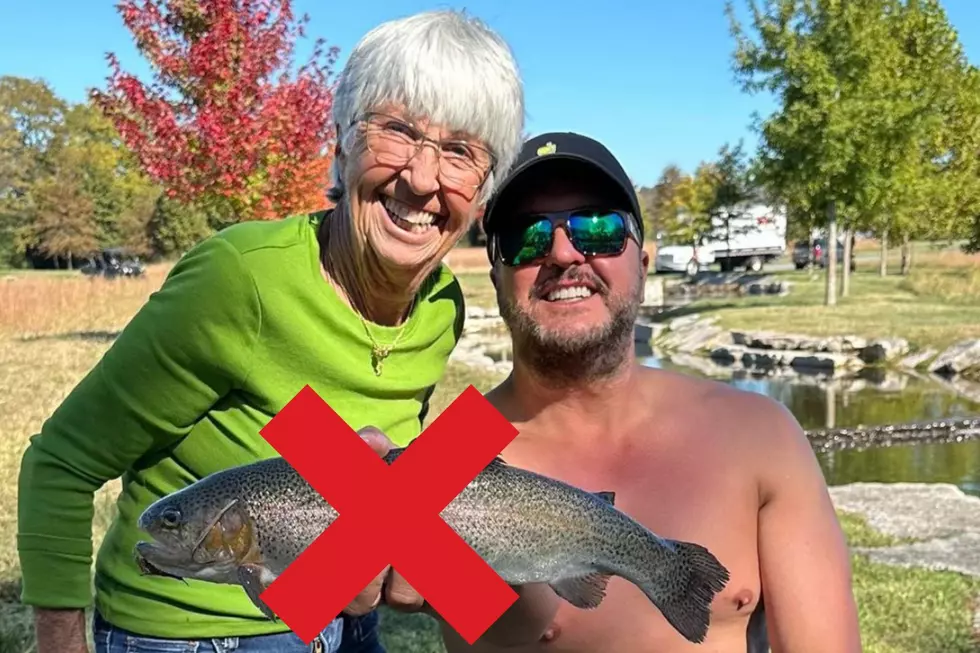
Do Record Reviews Matter in the Age of Social Media?
The record review used to be one of the most important pieces of coverage an artist could hope for in terms of career advancement, but that's changed significantly in the digital age. With music so readily available for consumers to experience for themselves, it begs the question: do record reviews really even matter anymore?
NPR posed that question in 2013, after rockers Arcade Fire found themselves on the receiving end of a number of negative reviews for their Reflektor album, which didn't prevent it from being a hit all over the world. "If someone wants to know whether or not they like a record, they'll probably just listen to it online somewhere," NPR points out, adding that while positive reviews can help or hurt a younger act, "for bigger, more established artists ... a bad review probably isn't going to change what fans think of the band or its music."
There are plenty of examples of this in country music; in fact, the disparity between artists who are seeing the biggest commercial success in the genre and those who are the most critically applauded has arguably never been greater. Kacey Musgraves, Brandy Clark, Sturgill Simpson and more of country's most respected singer-songwriters have received glowing reviews, while generally finding little-to-no support from country radio, with only Musgraves scoring a Top 10 single there. Meanwhile, some of the biggest superstars in the genre routinely score commercial hits with songs that either receive lukewarm or outright negative reviews.
I think that if you get a credible review from a respected outlet, it helps to open doors for artists, even now.
Perhaps the ultimate example is Luke Bryan's "That's My Kind of Night," which took a critical beating upon its release in July of 2013. Country Weekly said it "unfurls all the prerequisite cliches: jacked-up trucks, beer, getting your 'love on', and other assorted triteness," while Country Universe slammed its "unabashedly dumb, mind-numbing lyrics that insult the history of the country genre and the intelligence of its fans."
Despite those reviews and the fact that Zac Brown infamously called it "the worst song I've ever heard," "That's My Kind of Night" reached No. 1 on Billboard's Hot Country Songs chart — the second of six consecutive No. 1 hits from Bryan's Crash My Party album. The tour in support of that project saw Bryan performing in stadiums, and he is inarguably one of the biggest acts in country music right now, along with fellow stadium-filler Jason Aldean, who's not exactly a critical favorite himself. With that being the case, it's not hard to see why many people feel professional reviewers are simply talking to themselves and their peers at this point, rather than influencing the tastes and decision-making of the fans.
Even so, Nashville publicist Claire Cook thinks reviews are still important from a promotional angle. Cook works with Average Joes Entertainment, whose artists include Colt Ford, the Lacs and Moonshine Bandits, and she uses reviews to help build promotional campaigns for her artists.
"I think that if you get a credible review from a respected outlet, it helps to open doors for artists, even now," Cook tells Taste of Country. "If you've got a quote from a major media outlet that's respected, it's gonna get the attention of other outlets that you're trying to break into. So in terms of journalists' credibility, I think that still carries weight."
Some of the biggest superstars in the genre routinely score commercial hits with songs that either receive lukewarm, or outright negative reviews.
Average Joes has developed a unique business model that emphasizes social media, so part of Cook's plan is to balance media coverage with peer-to-peer sharing, utilizing both traditional and new media approaches. "Back in the day it was all about getting print, and now of course people can discover the music through streaming services," she notes. "It's recommended — if you like something, then you'll like this. So [a review] probably doesn't have as much weight in terms of the fanbase, because we know that if our fans like something, they'll share it with their friends."
It's getting harder and harder for individual acts to get positive reviews from respected sources, in part because there are more acts competing for exposure than ever, and in part because so many outlets simply don't publish in-depth reviews anymore. Many online outlets are at least partly reliant on the traffic they get from artists sharing their content via social media, which has led to various outlets modifying their approach to reviews. Some, like LA Weekly, have done away with reviews altogether after realizing that they simply don't perform well online.
“You’ll notice that in recent months we’ve dispensed entirely with album reviews. Wanna know why? Nobody read them," editor Ben Westhoff wrote (quote via ToneDeaf). "And we know this with certainty because not a single person has complained.”
It's always been true that bad reviews can't really destroy an act that people like, and good reviews can't make one successful if ordinary people don't like the music. But Cook says reviews can still potentially have a sales impact, even if it can't be measured.
"If there's a buzz and people are talking about it, then they might be led to listen to it, and hopefully they'll buy it or discover it," she observes, adding, "I do think it's diluted. There are so many opinions out there, it does get diluted, and the fans really have to try and make those decisions for themselves to a large degree. I think the audiophiles, and the people who have really followed an artist and are into the art of it, are probably going to pay more attention to the critical reviews than just the more casual type fans."
There are so many opinions out there, it does get diluted, and the fans really have to try and make those decisions for themselves to a large degree.
According to Cook, reviews are still vital for smaller artists to develop their careers, even if those placements are with smaller, less credible outlets. "I think developing artists should really look at everything. You need to be everywhere," she says, adding that Average Joes is open to working with smaller outlets if they see potential there. "You never know what's going to be the next Rolling Stone."
Even though professional reviews have steadily given way to social media sharing, streaming services like Spotify and even YouTube, and aggregate sites like Metacritic as the primary means for people to make decisions about music, it's unlikely they're going to fade away entirely. Spin editor Christopher R. Weingarten argues that they serve an aesthetic function above and beyond merely steering fans toward or away from a given project.
“I think reviews still serve a purpose … but there’s certain things that they don’t do anymore,” he tells Metro News. “They’re not the way for people to discover music like they were ... I think music criticism is an artform. I think (it) needs to exist for its own sake. To get people to make connections between records and other records, to get people thinking about the things that are in the air.”
Luke Bryan and Other Stars as Kids!
You Think You Know Jason Aldean?
More From Taste of Country








![Luke Bryan Captures Nostalgia + Romance in ‘Love You, Miss You, Mean It’ [Listen]](http://townsquare.media/site/204/files/2023/06/attachment-tragedy_lukebryan_mathew-tsang.jpg?w=980&q=75)
